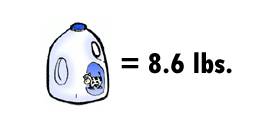It’s GrOw Time
Greetings,
I hope everyone had a very Merry Christmas! The past few weeks always seem to be super busy. Now it’s time to get our focus back on our visions and dreams so 2013 can be a terrific year. Thanks to Keith Patterson for sending me the following 5 possible barriers all of us might face during the coming months.
Enthusiastically,
Gary Burke
Why do some people achieve their goals while others fail? I believe it’s because successful people manage to overcome five barriers that, in many cases, guarantee failure. Here are those barriers and how to overcome them:
1. Uninspiring Goals
When most people set goals, they envision a “thing,” such as a particular amount of money, an object (like a new car), or a specific achievement (like writing a book). Unfortunately, these “things I’m gonna get or do” goals don’t appeal to the core of what motivates you, because they miss the point that what you’re actually seeking in life and work is the POSITIVE EMOTIONS that you believe those things will produce.
Fix: Rather than envisioning a “thing” as your goal, envision–with all the strength in your imagination–how you will feel when you achieve the goal. That way, you’ll be inspired to do whatever it takes (within legal and ethical bounds) to achieve that goal.
2. Fear of Failure
If you’re afraid of failing, you won’t take the necessary risks required to achieve your goal. For example, you won’t make that important phone call, because you’re afraid that you’ll be rebuffed. Or you won’t quit your dead-end job and start your own business because you’re afraid that you might end up without any money.
Fix: Decide–right now!–that failure, for you, is a strictly temporary condition. If things don’t go the way you’d like, it’s only a setback that, at most, delays your eventual success. In other words, accept the fact that you’ll sometimes fail, but treat that failure as an unavoidable (yet vital) component in your quest.
3. Fear of Success
In many ways, this fear is even more debilitating than the fear of failure. Suppose you achieved something spectacular, like enormous wealth. What if it didn’t make you happy? What then? What if you ended up losing all of it? What then? Would your friends start acting weird? Would your family be envious? Such thoughts (and they’re common) can cause even a highly motivated person to self-sabotage.
FIX: Decide that you’re going to be happy and grateful today and happy and grateful in the future, no matter what happens. Rather than focus on possible problems, envision how wonderful it would be to be able to help your friends and family achieve THEIR goals.
4. An Unrealistic Timetable
Most people vastly overestimate what they can do in a week and vastly underestimate what they can do in a year. Because of this, most people try to cram too many action items into the short term rather than spacing out activities over the long term. The inability to get all the short-term steps accomplished creates discouragement and the impression that the final goal is slipping away.
Fix: As you list the activities and steps required to achieve a goal, schedule only the 20% of the activities that will produce 80% of your results. Beyond that, set ambitious long-term timetables, but always leave some “wiggle room” when you plan short term.
5. Worrying About “Dry Spots”
It’s easy to get discouraged when you reach a point at which nothing you do seems to advance you toward your goal. For example, suppose you’re trying to master a certain skill. You make swift progress at first but then, after a while, it seems as if you’re not doing any better, or maybe a little worse. Some people use these “plateaus” or “dry spots” as an excuse to give up and therefore fail.
Fix: Whenever you reach a plateau or dry spot, it’s time to celebrate rather than give up. A plateau is almost always a sign that you’re on the brink of a major breakthrough, if you just have the patience to stick with it and trust that you’ll eventually achieve your goal.




